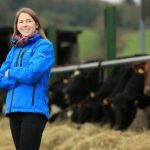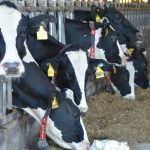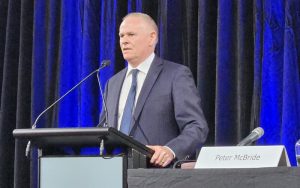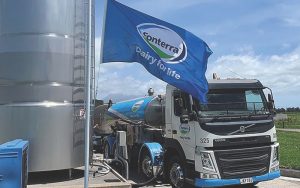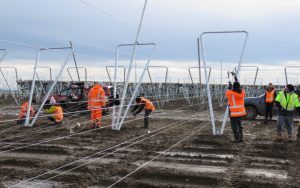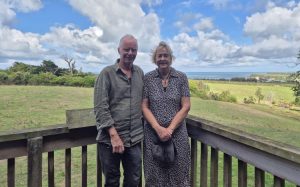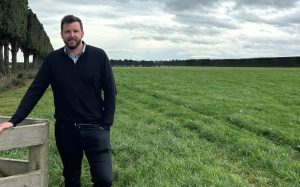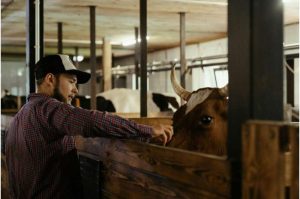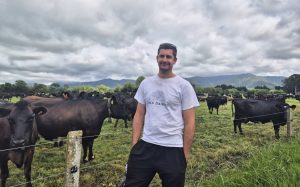
It was when the dairy farmer had to shoot his newborn calves that the impact of Mycoplasma bovis finally hit him.
Looking back, he now believes it is something no dairy farmer should ever have to put themselves through.
“I think was a really bad call,” he says at his quiet Maungatautari property. “On the other farm, we had a contract milker and that sent him over the edge, killing the calves, and he tried to commit suicide in spring.
“I found it hard here, too – after a while you just learn to grit your teeth and do it.”
Smit was the first dairy farmer in Waikato to have his cows test positive for the cattle disease, where it was found on two of his three farms.
Calving was always the highlight on the farming calender for Smit because he saw the next generation of his herd being born.
“Now I had to shoot them on a daily basis for weeks on end and I think the impact of that has definitely been underestimated, not only for me, but plenty of other farmers too.”
He staggered the culling to reduce the financial and emotional impact. He said the the final portion of his herd left the farm just three weeks ago.
“Emotionally, I find it quite hard because I’m really attached to my cows. In the beginning you have a lot of uncertainty because you’re not sure what is going to happen.
“I’ve put a lot of effort into my cows and into the breeding. They were my life so from that point of view it’s been a hard time.”
Fear and anger from others in the industry also saw Smit receive death threats.
Inside his home near Cambridge, sitting on his dining room table is a bullet.
It was mailed to him after he publicly outed himself as having the disease at a packed meeting five kilometres up the road at the Sir Don Rowlands Centre in late May last year.
“I’ve had it verbally and I’ve had a death threat in the mail, too, along the lines of, watch your back, because at the time I was the first person to have brought M. bovis into the North Island.”
Yet being at the centre of the hysteria that gripped many farmers last winter didn’t worry him, he said.
“I don’t care, I’ve got a pretty thick skin.”
M. bovis is a bacterium that can cause a range of serious conditions in cattle, including mastitis, pneumonia, arthritis, and late-term abortions. However, meat and milk produced from infected animals are safe for human consumption.
He said there is still a lot of ignorance among farmers about the disease, despite it now being in New Zealand for nearly two years and all of the publicity done by the Ministry for Primary Industries.
“Most of February I spent buying cows for the other farm and one particular farmer, I got ordered off the farm when he realised I was the guy with M. bovis.”
It is too early to know the disease’s financial impact as he has a number of compensation claims in with the MPI which have yet to be signed off.
His 89-hectare farm has been cleared of all stock since March 19. The dairy shed and calf rearing facilities are cordoned off with ‘restricted area’ tape. Out at his farm gate is a restricted place notice and For Sale signs.
He decided to sell the property in October, but a flat market and fear of M. bovis has kept buyers away.
Although MPI has removed the last of the active property classifications around the five M. bovis positive farms in Waikato, his farm is still in a mandatory stand down period after the last of his stock left the farm.
Those restrictions will be lifted when the new dairy season begins at the end of May. Smit has already started buying cows to resume milking in the new season, but wants to exit the industry and leave the country as soon as the farm sells.
“It’s not the country I came to. I have been here since 1985 and it’s not just about what’s happened. As a dairy farmer I feel unwelcomed in today’s society. We’re users and abusers and animal abusers, we rape the environment et cetera.”
How the M. bovis reached Smit’s farm
The disease was brought onto his farm after he bought cattle off Southland farmer Alfons Zeestraten in June 2016. He received a call in December 2017 from Zeestraten, saying his farm had the disease.
At that stage, Smit thought his farm was M. bovis free because his cows were not showing the disease’s symptoms apart from one which had an aborted calf.
Then in January 2018, MPI asked him if he had bought cattle from the Zeestratens, which he confirmed he had.
In March, his farm was placed under a notice of direction, meaning it was suspected to have the disease. Further testing confirmed its presence and it was made public in May.
It’s been a hard 12 months, but Smit feels like the worst of it is behind him.
“There’s always light at the end of the tunnel. Life carries on but it’s been a hard road and a waste of time.”
He is convinced that the Government’s decision to eradicate the disease is a waste of money and that the disease’s impact has been overstated. To date, 91,112 animals have been culled and at a guess, he estimates only 5000-10,000 animals from that group actually tested positive.
“The rest were just casualties. To this day, I can’t understand why they went down this road.
“In my opinion, they will never eradicate it and that’s not the MPI’s fault, that’s just the nature of the disease. It’s very hard to find and in most instances the animals that carry it are never sick with it.”
Where to get help
Rural Support Trust: 0800 787 254
Lifeline (open 24/7) – 0800 543 354
Depression Helpline (open 24/7) – 0800 111 757
Healthline (open 24/7) – 0800 611 116
Samaritans (open 24/7) – 0800 726 666
Suicide Crisis Helpline (open 24/7) – 0508 828 865 (0508 TAUTOKO). This is a service for people who may be thinking about suicide, or those who are concerned about family or friends.
Youthline (open 24/7) – 0800 376 633. You can also text 234 for free between 8am and midnight, or email talk@youthline.co.nz

